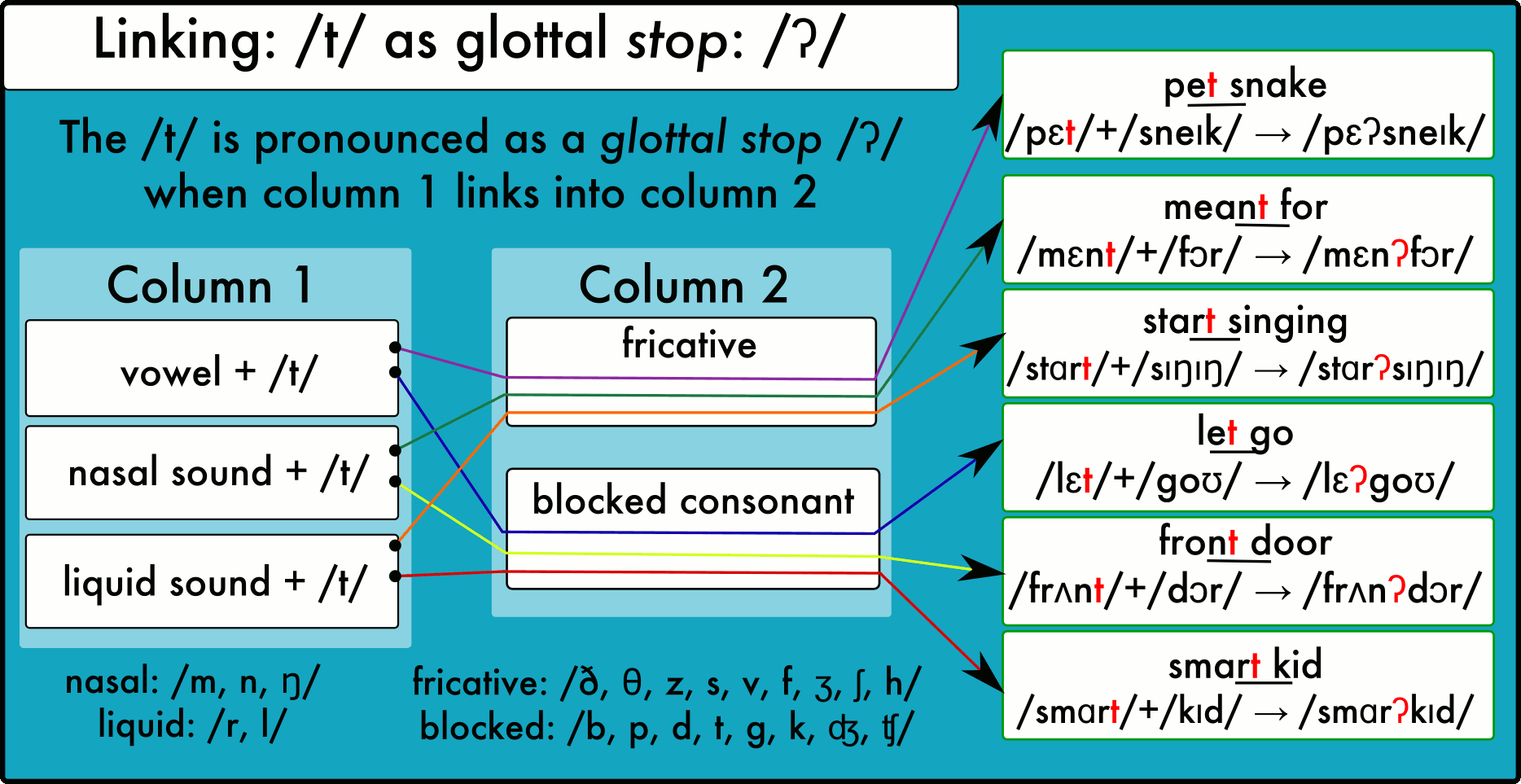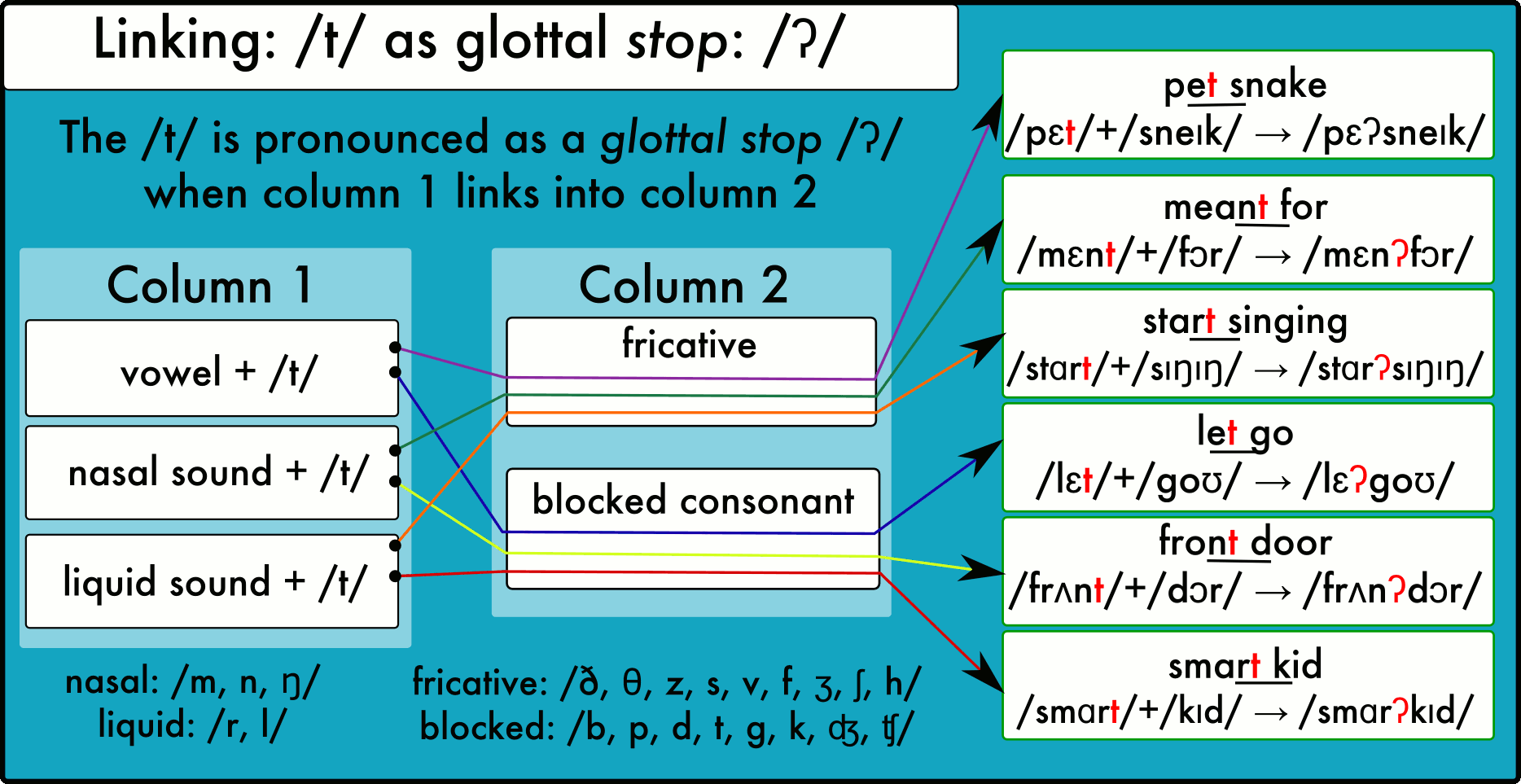Linking > Linking Categories > Assimilation: Linking /t/ as Glottal Stop /ʔ/
Assimilation: Linking /t/ as Glottal Stop /ʔ/
Assimilation occurs when a sound changes to a different sound because of the sounds before and after it. The /t/ regularly changes to a glottal stop, the quick closing and opening of the vocal cords. (It is the sound in the middle of the expression "uh-oh.")
There is a wide range is circumstances in which the glottal stop occirs in American English pronunciation, including:
Get more Linking lessons like this in our downloadable Linking ebook!
When /t/ at the end of a word follows:
- vowel sound
- nasal sound /m, n, ŋ/
- liquid sound
and the next word begins with
- fricative /ð, θ, z, s, v, f, ʒ, ʃ, h/
- blocked consonant /b, p, d, t, g, k, ʤ, ʧ/
Practice pronouncing the linked /t/ as /ʔ/ (a glottal stop):
1. ancient‿cultures: We studied ancient‿cultures for the first semester.
2. chocolate‿chip: There are fresh chocolate‿chip cookies on the counter!
3. don't‿see: I don't‿see the problem.
4. quite‿different: He's quite‿different from his brother.
5. want‿some: Do you want‿some tea?



